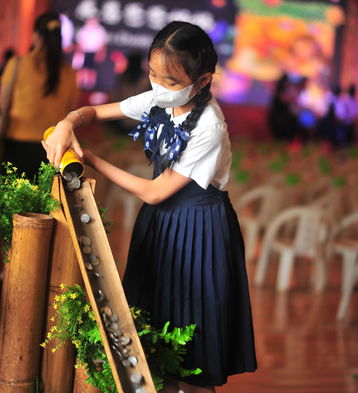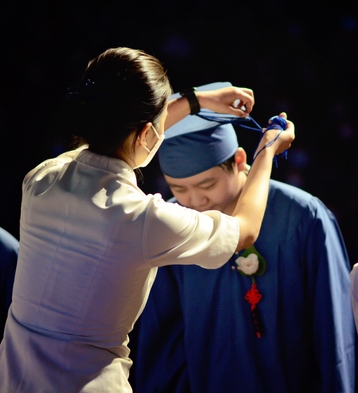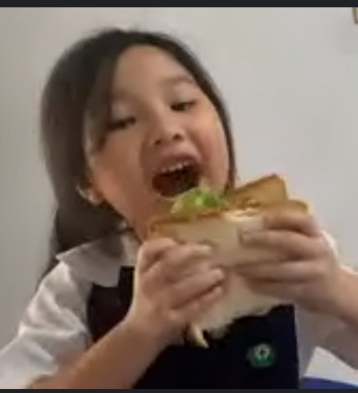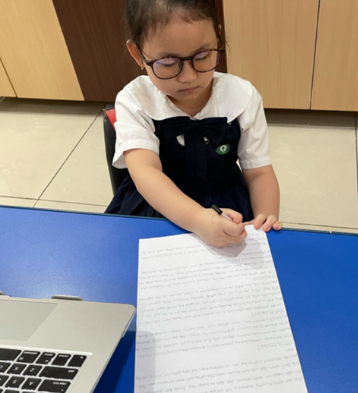Listening to Children's Love Languages
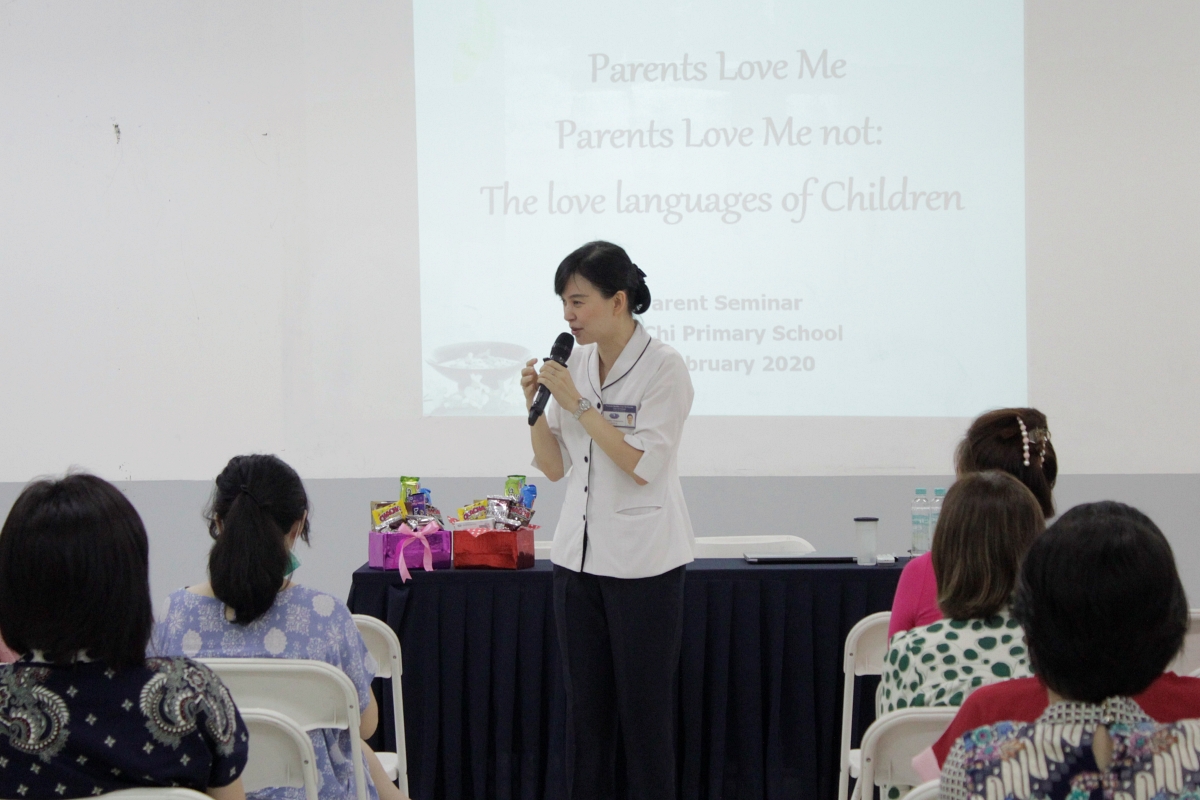
The family is an everlasting school, parents are lifetime teachers ~ Jing Si Aphorism by Master Cheng Yen
“Happy Valentine, moms!” greeted Ms Caroline Widjanarko that morning. The holding room at the primary building was filled with the spirit of love, with all mothers and fathers dressed in red and pink.
In conjunction with Valentine’s day, on February 14, Tzu Chi Primary School welcomed about 60 parents in “Parents Love Me, Parents Love Me Not” seminar, to learn and discuss about the Five Love Languages for Children with Mr Agus Hartono, a certified hypnotherapist and a humanistic teacher at Tzu Chi Secondary School.
Ms Widjanarko proceeded by asking parents, “I see how much love you have for your children by how eager you are in joining this seminar! I am pretty sure we all think we love our children, but do they feel loved?”
This seminar is basically trying to answer two questions: (a) ‘Do you love your children?’ and (b) ‘Do your children feel loved?’. In many cases, the latter is sometimes forgotten. When building relationships with others, not limited to parents-children, one might forget to ask themselves, whether or not the love they give to others is received well. Mr Hartono used a phone’s battery as a metaphor for parents’ love. “Each of us is equipped with a love battery. Now, when your phone’s battery is about to run out, you’ll rush to find a charger, right?” he said.
5 Love Languages
Likewise, our love battery needs to stay strong to be able to provide our children with the love they need. Different batteries need to be charged with different charger. Here is when different love languages need to be understood.Those five love languages are: gifts, words of affirmation, acts of service, physical touch, and quality time.
Every parent needs to at least fulfill two out of these five love languages. “Of course if you can do more than two, the better,” said Mr Hartono. Certainly the next question is how we know which of those five suits our children.
Easy ways to find out your children’s love language is by listening to them. Mr Hartono emphasised that most of the time, we already know but we don’t listen. The first thing to discover their love language is to listen. “Children tend to ask what they want, sometimes we ignore it. If they often ask us to stay around with them, that means they prefer to spend quality time with us.”
Some children are outspoken, some are not. For parents who are blessed with a quiet one, there are other ways to discover their love languages. “You can observe how your kids show their love to others. Children who like giving gifts will most likely love receiving gifts too. As well as children who love complimenting others, would love to receive compliments too.”
Character Building
Children spend their time not only with us, but with their friends at school and some, with their nannies. Hence, showering them with the right love language doesn’t necessarily solve all the problems. Ms Erlin, a mother of three who attended the seminar thought she has done everything told in the seminar, yet, she is still not able to see loving traits inside her three children.
“Parents should remember our children live within the society that could affect their behaviour as an individual.Cooperation between both parents is also essential, it won’t work unless both parents show similar treatment and affection,” Mr Hartono added.
Tzu Chi School three ideals of gratitude, respect, and love are practiced in day to day activities. The seminar is hoped to strengthen relationships between parents and children. With the ‘right’ portion of love from parents, this surely helps children’s upbringing into a child that could demonstrate gratitude, respect, and love inside their daily activities, both in school and out of school.


